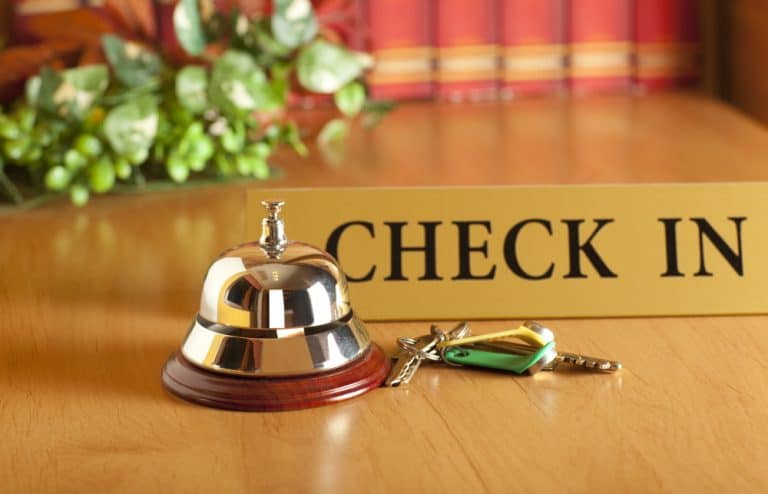Can You Deposit a Check for Someone Else?
This post may contain affiliate links. Please read how we make money for more information.
Sometimes it seems like there aren’t enough hours in a day to take care of all of the things we need to do. This is especially true for those who juggle full-time jobs, take care of a family, volunteer in their communities, and do other things. Trying to find time to run errands is a challenge for many.
Because of commitments and time constraints, some people may wonder whether they can let someone else deposit a check they may have for them. It seems reasonable, after all, that a bank would let someone other than the account holder put money in an account. It’s not like they are trying to take money out.
Many banks will let someone other than the account holder deposit a check for that person as long as the correct procedure is followed. Each bank will have its own policy on the issue. If you aren’t sure, it’s best to call before making a trip to the bank to make sure there are no surprises.
Table of Contents
How Banks Process Checks
A brief explanation of how banks process checks may help you understand whether you can deposit a check for someone else.
When a bank receives checks each day, it starts a process that results in the bank receiving payment for the amount of the checks. The bank first separates the checks by the issuing bank. It may also make a notation of who made the deposit. After the business day is over, the bank will then send the checks to the issuing banks to request payment.
Upon receipt of the checks, the issuing banks will verify that the checks are legitimate and that the signatures are valid. The bank will also make sure that each customer has enough money in his or her account to cover the amount of the check.
If everything checks out, the issuing bank will then transfer money to the bank making the request. If there is a problem somewhere, the issuing bank may not release the money or it may investigate the issue further.
The process may take a few days to complete. This is the reason why banks tell you that there may be a delay in money showing up in your account when you make a deposit.
It’s Up to the Bank
As previously mentioned, whether you can deposit a check for someone else is up to the bank. Each bank will have its own policy on the matter. Some banks will allow a third party to make a deposit, and others may require the account holder to be present for security reasons.
If you aren’t sure about your bank’s policy on the issue, just give them a call. A bank representative should be able to tell you whether a third party can make the deposit or whether they require the account holder to be present. Be sure to ask how the bank wants the check endorsed and whether they want a deposit slip with the check.
If your bank does allow a third party to deposit a check, be sure to do it in person with a teller. This allows you to answer any questions the teller may have about the check or the account holder. ATMs are convenient, but there are times when dealing with a real person is preferable.
My Experience Having Someone Else Deposit My Checks
There have been many times over the years when I have asked someone else – usually a family member – to deposit a check for me. Like most people, I’m often busy working or doing something else. And if someone is already making a trip to town to run errands, why not have them take care of a simple banking transaction on my behalf?
Your mileage may vary depending on your bank’s policy, but I have never had a problem with having someone make a deposit on my behalf to my account. Of course, the person I give my check to is someone I fully trust.
I do want to point out that every time people have made deposits for me, they have always made the deposits with a bank teller. They have never tried to make a deposit with the ATM.
How to Deposit a Check for Someone Else
The following is a general overview of the steps you’ll need to take to deposit a check for someone else. Keep in mind that the steps and procedures may differ based on a particular bank’s policy.
1. Contact the Bank
The first step is to contact the bank to find out if they will allow a third party to make a deposit for one of their customers. If the answer is yes, it’s also important to ask them how the check should be endorsed and if they need any additional information, identification, or supporting documentation.
2. Make Sure the Check Is Endorsed
The next step is to make sure the check is properly endorsed. The bank you will be taking the check to will tell you how they prefer the endorsement on the check. Some banks may only require the back to be signed by the person the check is issued to. Other banks may require the check to be endorsed with “for deposit only.” It’s possible that both a signature and “for deposit only” may be required.
3. Fill Out the Deposit Slip
It’s a good idea to take a deposit slip with you when you make a deposit, even if the bank says you don’t need one. Deposit slips have account and routing numbers printed on them, which use a special type of ink called MICR. This stands for Magnetic Ink Character Recognition.
With MICR deposit slips, a bank teller can simply scan a deposit slip and the correct account will be pulled up. The bank teller can then record the amount of the deposit and give you a receipt. Deposit slips help to reduce errors.
When filling out the deposit slip, be sure to enter the current date, the check number, and the amount of the check. You may need to enter additional information as indicated on the deposit slip.
4. Deal Directly with a Bank Teller
When you take a check to a bank to deposit it for someone else, be sure that you make the deposit with a teller. While it is possible to make a deposit through an ATM, it’s best to avoid ATMs when depositing someone’s check in case you need assistance.
If you run into a snag, a bank teller should be able to help you understand what the problem is and how to correct it. Going through the drive-thru is fine because you can easily communicate with a bank teller.
5. Get a Receipt
After the transaction has been completed and the check has been deposited, be sure to get a receipt. The receipt is the only proof you will have that you made the deposit. Because of this, you will definitely want to keep the receipt and present it to the person you made the deposit for.
Precautions for Depositing a Check for Someone Else
There are a few things you should consider and look out for if you are going to deposit a check for someone. You don’t want any surprises when you have someone’s check in your possession.
1. Be Sure You Keep the Check in a Safe Place
If someone gives you a check to deposit, that person is entrusting you with the check’s safety. It’s a big responsibility. Because of this, you want to make sure the check remains in your possession until you make the deposit.
You don’t want to put it down somewhere with the intention of taking care of it later. Things can happen between now and then. It could be lost or stolen. Maybe your dog eats it. You never know – stranger things have happened.
2. Go Straight to the Bank
If you are going to deposit a check for someone, be sure you go straight to the bank. If you have several errands that you need to do, go to the bank first if possible. The longer you delay in depositing the check, the greater the possibility that something could happen to the check.
3. Be Sure the Check Is Properly Endorsed
Before you leave to make the deposit, make sure the check is properly endorsed according to the bank’s instructions. You did call the bank, right? You don’t want to make a trip to the bank and waste both your time and gas just to find out that there was an endorsement error or you completely forgot about the endorsement.
Also, don’t forget to fill out a deposit slip. The easier you make it for the bank teller, the smoother the transaction will be.
Contact the Bank First
Depositing a check for someone else is definitely possible. Instead of showing up at the bank with the check, however, it’s best to contact them first to find out what their policy is and what specific steps you need to take to make the deposit.
It’s nice to be able to have someone run an errand for you. We all get busy sometimes. Thankfully, there are some things you can do at a bank for someone else. Depending on the bank and its policy, depositing a check may be one of those things.







